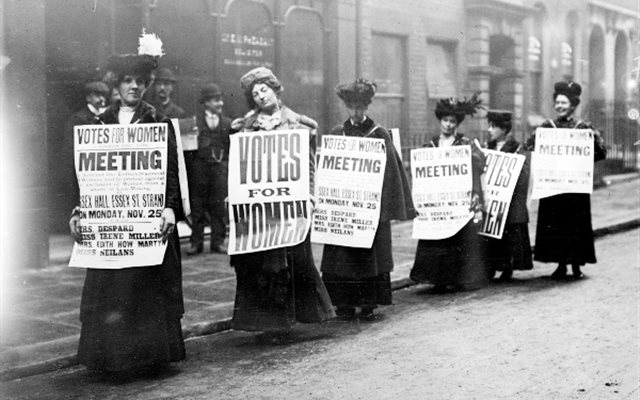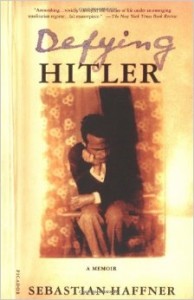In response to the guilty verdict in the Greek Golden Dawn Nazi trial in Athens, Greece, Dr Maria Tzanakopoulou from the School of Law charts the history of the group, the anti-fascist movement in the country and the people’s reaction to the historic verdict.
The world salutes yesterday’s historic verdict in the Greek Golden Dawn Nazi trial before the Athens Court of Appeal, Criminal Division. Five and a half years after the commencement of proceedings, the Nazis were jailed. The most momentous trial for an entire generation of Greeks, and possibly the biggest post-Nuremberg Nazi trial in global history, yesterday’s verdict came to the relief, emotional outburst and thrill of thousands of citizens gathered outside the Court of Appeal in Athens. The Nazis were jailed!
From a fringe fascist group in the mid-1980s, Golden Dawn developed into a decisive political force, securing 21 seats in the 2012 general election to the astonishment of Greek democratic people. Yet the development was not without prior notice. The ascension of Golden Dawn to a dominant political and ideological force was the offspring of years of far-right radicalisation, pauperisation, austerity and debasement of the lives of citizens. With the exception of the Left, mainstream political forces did very little, if anything, to put a stop to extreme far-right, nationalist and anti-immigrant voices. The words used by mainstream politicians in their references to Golden Dawn following their 2012 election are hair-raising: ‘an authentic political movement’; ‘activists’; ‘polite’; ‘earnest’ are a few among them. As such, the Nazis did not solely make it to Parliament; they were normalised by the system, becoming an almost conventional interlocutor in everyday public political discourse. They exerted decisive influence, developed into a better-organised criminal organisation with military hierarchy and, covered with parliamentary immunity, began to spread hatred and violence through society in ways far more effective and extensive than before. The Nazis attacked, and often murdered, whatever and whoever they could not comprehend – from the immigrant worker to the dignified anti-fascist to the fighting trade unionist.

Magda Fyssa, mother of antifacist rapper Pavlos Fyass (who was assasinated in 2013), the moment the verdict was announced.
Antifascist rapper Pavlos Fyssas’ murder in 2013 was a milestone in the turn of events that led to the Nazis’ conviction. Pavlos’ assassination was preceded by the murder of 27 year old Pakistani Shehzad Luqman, the attack against Communist trade unionists by organised assault battalions, and the violent attack against four Egyptian fishermen. The above events occurred between 2012 and 2013 and were just a few among many brutal assaults by the Nazis. Yesterday’s trial was about the individual crimes, which had been by and large confessed, but above all it was about the recognition of the Nazis as a criminal organisation.
The historic announcement of the conviction of the entire Nazi group for leadership and/or participation in a criminal organisation was followed by an ecstatic outburst of applause and tears by the crowds. Thanks to the strenuous efforts of the Greek anti-fascist movement, the demand for jailing the Nazis became hegemonic in society, assimilated into the mainstream, and relieved the people of at least some of the bitter fascist hatred that was spreading through. Over the past few days, the slogans ‘Jail the Nazis’ and ‘I won’t be scared’ were projected on central city landmarks of Athens and Thessaloniki. Convicts of the country’s largest prison raised a banner demanding that Nazis be jailed. Millions of citizens made small gatherings raising similar banners and posting them on social media. From Greek cities to Italy and France and from London and Liverpool to Dachau Concentration Camp, Europe cried out: ‘Jail the Nazis.’ Yesterday’s gathering was joined by schools, by grandparents with their grandchildren, by working people and their trade unions, by political organisations and anti-fascist groups, by mothers with their babies and citizens on wheelchairs. Pavlos’ mother, Magda, whose tenacious struggle against the Nazis made her the unwitting symbol of the antifascist movement, was deified by the crowds on her way out of the Court: ‘You made it, son! You did!’, she screamed.
The pain is soothed but our minds are not put at rest. Whatever gave birth to this is still alive. The trial was not the beginning and it is not the end of the struggle against fascism. It is a stage, albeit momentous, in the continuous war against fascism, xenophobia and hatred for the Other. It is one stage in the continuous effort to rebuild our communities on the basis of solidarity, respect and dignity. As these lines were written, just after the verdict announcement, police forces, though unprovoked, started teargassing the crowds. But yesterday, the people were no longer scared. Yesterday they paused and took in a great victory. In the name of Pavlos, of Shehzad and of a deeply wounded society, yesterday the people defeated the Nazis. Yesterday, society was no longer scared!








 This article was contributed by
This article was contributed by